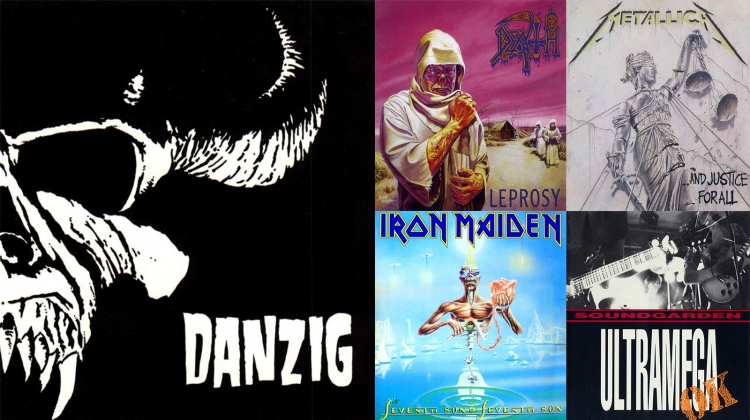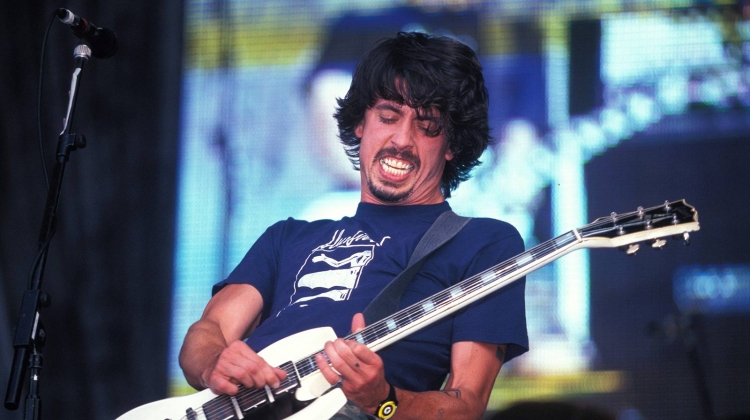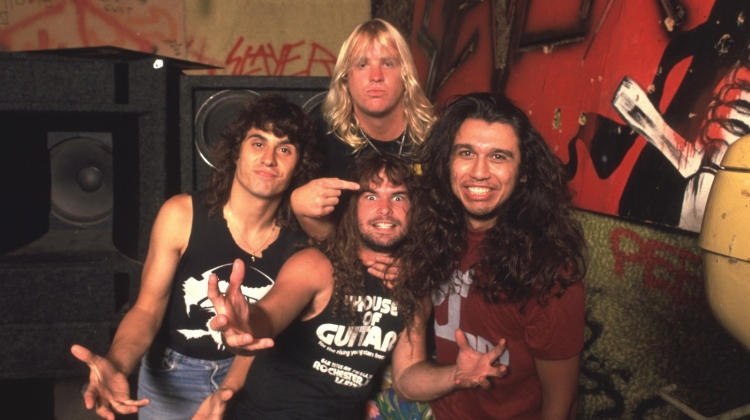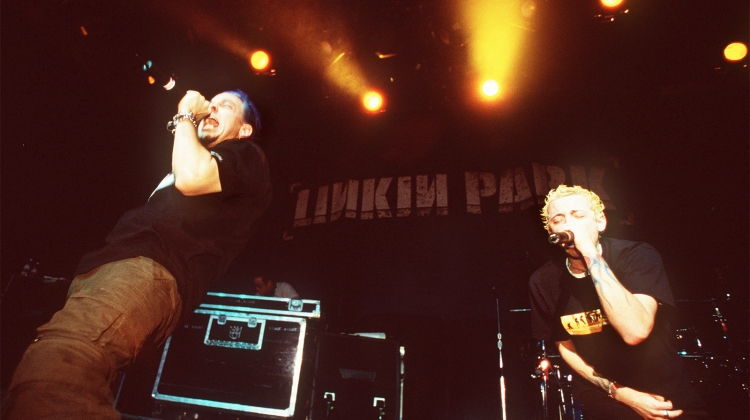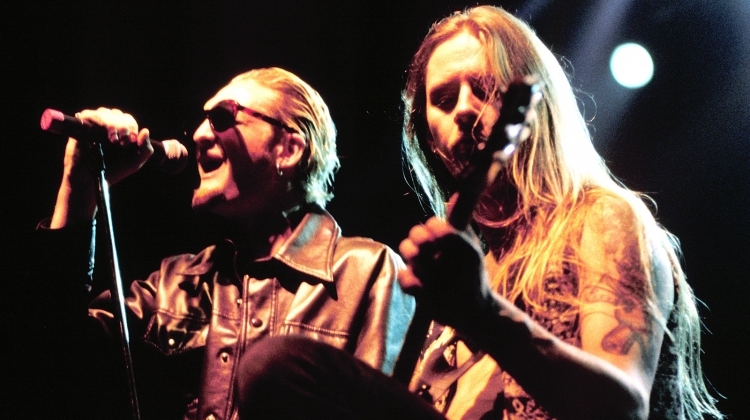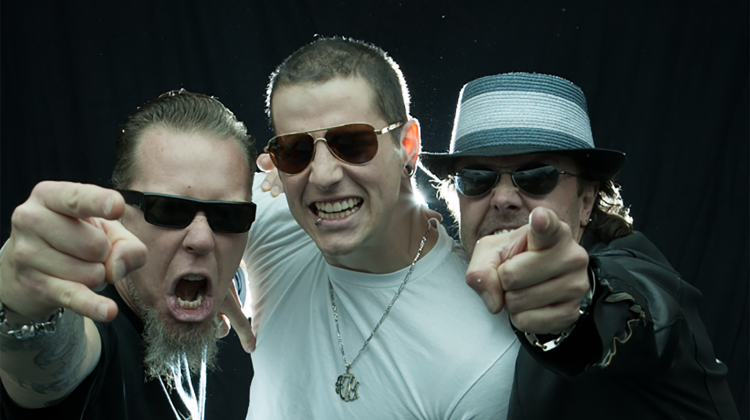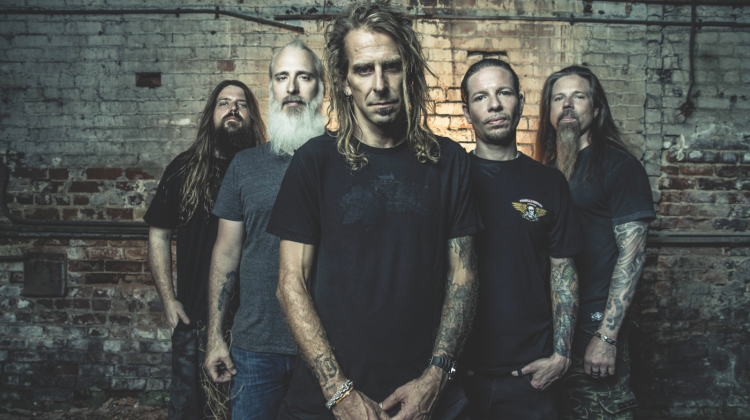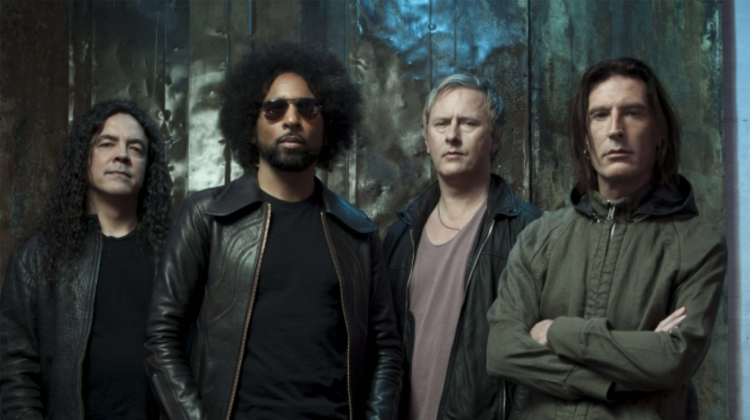In 1988, Prozac was sold as an antidepressant in the U.S. for the first time — 2,469,000 prescriptions were dispensed. Steve Winwood's "Roll With It" was the most played song of the year. Rain Man ruled the big screen; The Cosby Show, the smaller screen. The Washington Redskins won the Super Bowl. Roy Orbinson died. And a slew of heavy-music artists released badass albums — including the 15 below.
Carcass -'Reek of Putrefaction'
With their debut Reek of Putrefaction, Carcass's gloriously gory approach to grindcore established them as thought leaders of the subgenre. Later records like Necroticism – Descanting the Insalubrious and Heartwork nailed home their status as one of the most important extreme-metal bands of the era.
Danzig - 'Danzig'
Post-Misfits, Glenn Danzig stayed in the punk world with Samhain, going darker and more evil than he had with his pioneering previous outfit. Post-Samhain, Glenn and his team of all stars — Chuck Biscuits, Eerie Von and John Christ — slowed things down to a decidedly metal and almost blues approach, putting Glenn's vocal at center stage. On the strength of the single "Mother" — specifically a remixed version that became a radio and MTV hit in the early Nineties — the self-titled LP eventually went platinum.
Death - 'Leprosy'
Death's Screamy Bloody Gore may have been the first legit death-metal album, but follow-up Leprosy sharpened and matured the template — before main man Chuck Schuldiner exploded it completely by taking it in unimaginably progressive directions with albums like Symbolic and The Sound of the Perseverance. Primitive and crushing yet subtly catchy and technical, classic cuts such as the title track and "Pull the Plug" still stand as measuring sticks for brutal death metal today.
Helloween - 'Keeper of the Seven Keys: Part II'
After their 1985 debut, Walls of Jericho, the German power-metal act recruited 18-year-old singer Michael Kiske to free up founding vocalist Kai Hansen to focus on playing guitar. The new configuration jump-started Helloween's creativity and the group delivered an epic double-album — Keeper of the Seven Keys — to their label, who ultimately urged the group to break it into two stand-alone records: Part I and II (released in 1987 and '88, respectively). Thanks to the MTV airplay of Part II's fist-pumping anthem "I Want Out," that LP achieved breakout international success and essentially laid the blueprint for the European power-metal style.
Iron Maiden - 'Seventh Son of a Seventh Son'
Iron Maiden's seventh LP — their first to feature keyboards and fully embrace progressive rock's epic song lengths and unusual time signatures — helped to solidify the NWOBHM high lords' position in the mainstream, landing the band in the Billboard Top 20. "Can I Play With Madness?" was one of the group's biggest singles, and remains a staple on the live circuit to this day.
King Diamond - 'Them'
The first of King Diamond's back-to-back concept albums about a mentally ill grandmother and a house full of spirits (which concluded with 1989's Conspiracy) saw the Danish singer effectively delivers a full-on horror movie in audio form. Between the hallucinatory tale of a descent into madness and grand-matricide, and King's otherworldly wails and Andy LaRocque and Pete Blakk's ripping riffs and head-chopping solos, you've got an edge-of-your-seat, metal-as-fuck episode of Lore.
Manowar - 'Kings of Metal'
Founding bassist Joey DeMaio and guitarist Ross "The Boss" Friedman's cult of masculinity, metal and fantasy reached its no-wimps-allowed, cartoon-warrior, death-to-false-metal apex on Manowar's sixth album, 1988's Kings of Metal (Friedman left for the Dictators shortly after its release) — the title-track of which is as loud, dumb and amazing 30 years on as it was the first time they uttered "Other bands play/Manowar kill."
Metallica - '…And Justice for All'
Metallica were a big band before the bombastic …And Justice for All, but their first album since the death of bassist Cliff Burton turned them into a true juggernaut. Their concerts became epic full-scale productions, and care of the group's first music video, for "One," the Bay Area band became unlikely MTV staples and household names.
Ministry - 'Land of Rape and Honey'
The Land of Rape and Honey signified a seismic shift from EBM/darkwave dancefloor Ministry towards something far more sinister and uncharted: industrial metal. Starting with this landmark LP and particularly its scathing classic opener "Stigmata," Al Jourgenson and Co. would follow that dimly lit path toward their earth-shattering platinum effort ΚΕΦΑΛΗΞΘ, a.k.a. Psalm 69.
Queensrÿche - 'Operation Mindcrime'
The Washington-state prog-metal act's third release ranks among the best metal concept albums ever, thanks to its cinematic narrative (a drug addict become disenfranchised with a corrupt society and takes up arms with a fringe group of revolutionaries) and near-perfect musical balance between excellent riffage ("Revolution Coming," "Breaking the Silence," "Spreading the Disease"), theatricality ("Suite Sister Mary") and sing-along ballads ("I Don't Believe in Love"), which connected with a wide-ranging heavy-music audience and subsequently earned the LP platinum status.
Slayer - 'South of Heaven'
How do you follow up one of the greatest metal records ever made? By writing an album that could clearly be its No. 1 contender or, according to some, even the better of the two LPs. By smartly not trying to match Reign in Blood's speed and ferocity but steering their sound instead in a slower, more insidiously menacing direction, South of Heaven took Slayer from one of the best metal bands of their time to one of the best bands ever.
Soundgarden - 'Ultramega OK'
Soundgarden's debut full-length following a pair of EPs for Seattle's Sub Pop, the Grammy-nominated Ultramega OK captured Chris Cornell and his bandmates (then including bassist Hiro Yamamato) at a primal moment when rocking was more important than thinking: Sludgy, fuzz-ravaged tunes like "All Your Lies" were ur-grunge texts smeared with post-psychedelic residue.
Testament - 'The New Order'
The thrash anthem "Into the Pit" dominates Testament's mosh-ready sophomore disc, with the San Fran quintet positioning themselves as purists, carrying on the work of Metallica and Exodus. The inventive playing of super-shredder Alex Skolnick, however, makes the band not just defenders of the faith but true proponents of a new order.
Voivod - 'Dimension Hatröss'
Canadian weirdos Voivod would hit their peak global popularity with their next album, 1989's Nothingface, with its Pink Floyd cover and nods to Stravinsky, but in 1988 they were more influenced by anarcho-punk and German industrial music. The result was a warped concept album full of shifting time signatures and industrial samples that blazes a left-field path for future genre-benders like Meshuggah and System of a Down.
Youth of Today - 'Break Down the Walls'
Youth of Today started as a vision of a positive, healthy punk-rock approach in the minds of vocalist Ray Cappo and guitarist John Porcelly; that vision — and the "Youth Crew" movement as a whole — became a reality with their seminal debut LP Break Down the Walls. The first hardcore band to tour both Europe and the USA, the band spread its straight-edge gospel far and wide, an ethos that lives on today.
